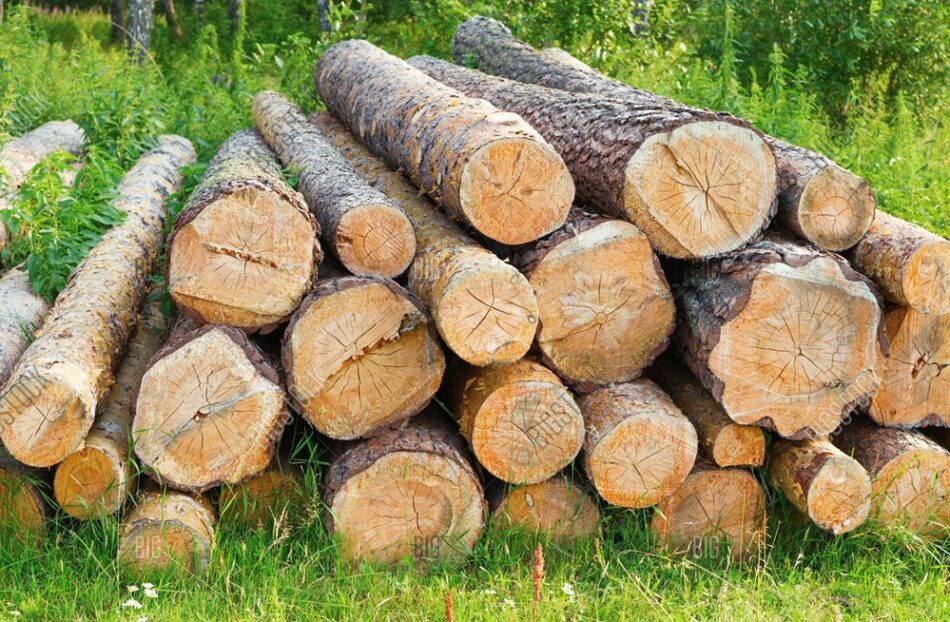With rising energy prices and growing concern over climate change, more households are turning to cleaner, more sustainable heating options. Firewood, when sourced and burned correctly, can be one of the most eco-friendly ways to heat your home, especially when it’s local.
Wood is a renewable fuel source, and unlike fossil fuels, it can be replenished through responsible forestry. But not all firewood is created equal. The way it’s harvested, dried, and transported has a big impact on its carbon footprint.
Using locally sourced, kiln-dried logs in Christchurch helps reduce your carbon footprint and supports sustainable forestry. These logs burn efficiently, produce fewer emissions, and come from carefully managed woodlands that prioritise regrowth and biodiversity.
Why Firewood Is Considered Eco-Friendly
When compared to gas or coal, burning wood can be a more environmentally responsible option. Trees absorb carbon dioxide as they grow. When burned, they release the same amount of carbon they absorbed during their lifetime, making the cycle carbon-neutral, provided the wood comes from sustainable sources.
The key lies in using the right type of wood and burning it efficiently. Poor-quality, wet logs release excess smoke, pollutants, and creosote, all of which undermine firewood’s green benefits. That’s why kiln-dried hardwood from local suppliers is the smart, sustainable choice.
Benefits of Using Local Firewood
1. Lower Transport Emissions
One of the biggest environmental advantages of buying local firewood is the reduced need for long-distance transport. Imported or out-of-region logs often travel hundreds of miles, adding unnecessary carbon emissions. Local suppliers operate closer to your home, meaning fewer vehicle miles and less fuel burned during delivery.
2. Fresher, Cleaner Wood
Locally sourced logs are often stored and handled better than mass-produced or imported wood. This helps maintain low moisture levels and avoids contamination with mould, pests, or chemicals. Cleaner wood means a cleaner burn, which helps protect air quality both indoors and out.
3. Supporting Woodland Management
When you choose firewood from a responsible local supplier, you’re supporting active woodland management. This involves thinning, replanting, and maintaining healthy forests that absorb carbon, prevent overgrowth, and encourage native wildlife to thrive.
Why Moisture Levels Matter
Dry wood is essential for eco-friendly heating. Logs with high moisture content require more energy to burn, release more smoke, and generate lower heat. This not only wastes fuel but also creates unnecessary air pollution.
Kiln-dried logs are dried in controlled conditions to ensure moisture content stays below 20%, the level recommended for clean-burning. This means:
- Less smoke and air pollution
- Higher heat output
- Lower risk of chimney build-up
- Better fuel efficiency overall
Hardwood vs Softwood: Which Is Greener?
Hardwoods like ash, beech, and oak are denser and burn longer than softwoods. This means you’ll use fewer logs to heat your home, which reduces your overall fuel consumption and emissions. Softwoods tend to burn faster and can release more resin, creating extra smoke and residue.
For the most eco-friendly fire, kiln-dried hardwood is the preferred choice. It’s efficient, long-lasting, and ideal for stoves and open fires used for regular heating.
Sustainable Firewood Sourcing
Truly sustainable firewood comes from managed forests where trees are replanted or naturally regenerated after harvesting. These woodlands are often certified by schemes like the FSC (Forest Stewardship Council) or managed by local authorities with a focus on long-term forest health.
Ask your supplier where their logs come from and how they manage harvesting. A reputable provider will be transparent about their sourcing and drying process.
Storing Firewood Properly at Home
Even eco-friendly logs lose their efficiency if they’re stored badly. Moisture can re-enter the wood if it’s exposed to rain or poor ventilation, undoing the benefits of kiln-drying. Keep your logs in a raised, covered, and airy structure, like a log store with slatted sides and a solid roof.
This helps preserve the low moisture content and ensures your fire burns hot and clean every time.
Tips for Cleaner Burning
To get the most from your eco-friendly logs, follow a few simple burning practices:
- Use dry, kiln-dried hardwood only
- Keep your stove well maintained and regularly sweep the flue
- Avoid burning treated wood, painted wood, or waste materials
- Use kindling or natural firelighters instead of chemical starters
- Maintain airflow in your stove for a hotter, cleaner burn
These habits will not only improve your fire’s performance but also reduce the amount of smoke and pollutants it produces.
Local Firewood Is Better for Christchurch Homes
In areas like Christchurch, where the coastal climate can make air-drying less reliable, kiln-dried logs offer a consistent, dependable solution. They light easily, burn longer, and produce more heat with less fuel.
Local suppliers also understand regional heating needs and can offer tailored advice on log types, sizing, and delivery schedules. This level of service helps ensure your firewood is always ready when you need it, without compromising on sustainability.
Final Thoughts
Eco-friendly heating doesn’t have to be complicated. With the right wood and good burning habits, you can enjoy a warm home that’s better for the planet. Local firewood ticks all the right boxes: renewable, low-emission, and supportive of sustainable woodland care.
Using locally sourced, kiln-dried logs in Christchurch helps reduce your carbon footprint and supports sustainable forestry. By choosing the right firewood and burning it efficiently, you get clean, reliable heat that’s kinder to the environment, and supports your local community at the same time.









